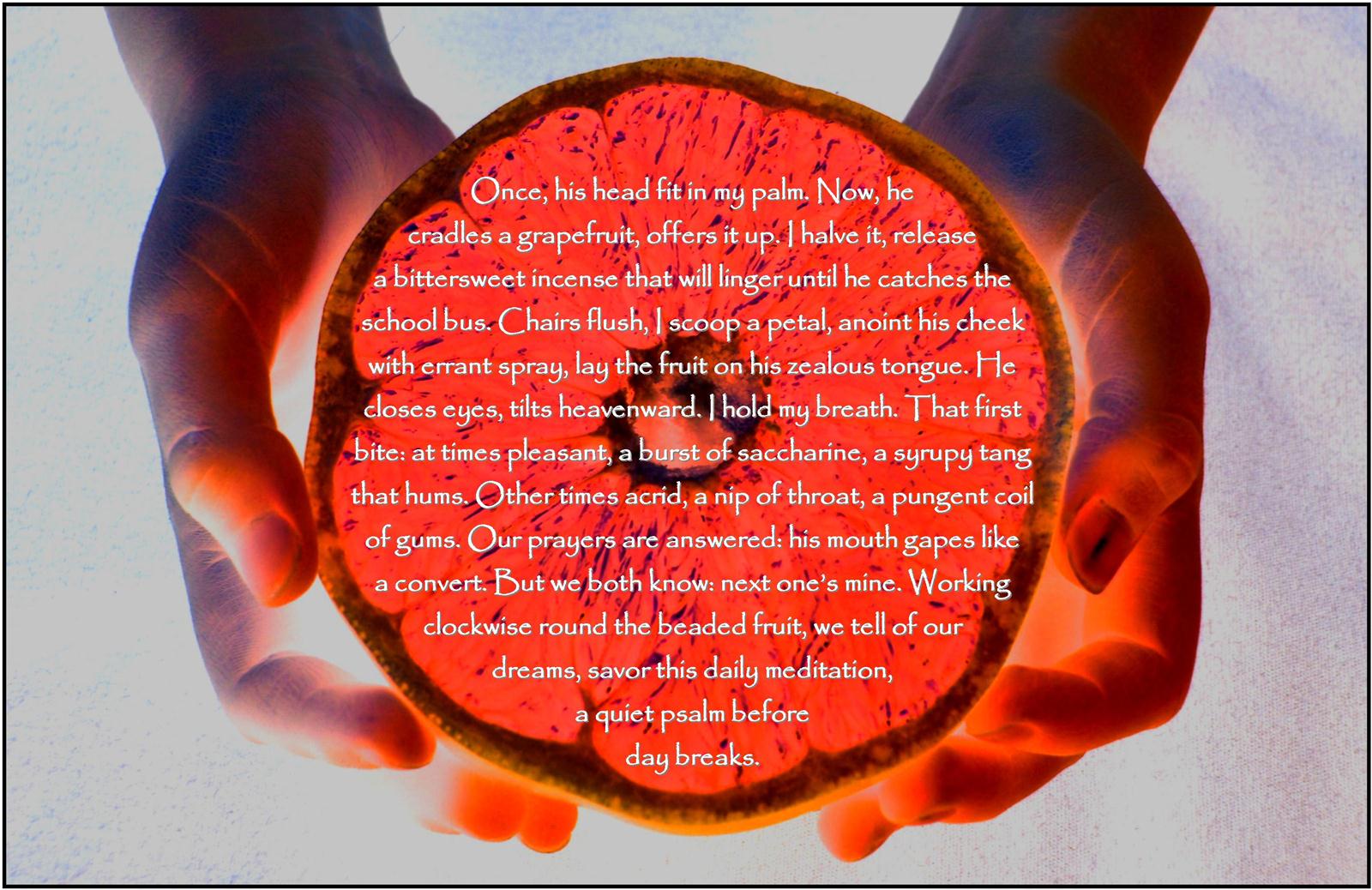Kitchen Waltz
We tilled our garden beds, making way for heirloom starts,
cuddled into careful impressions. The peppers we staggered,
left to right, front to back, and they did, in a way, resemble dance steps,
instructional patterns for those less nimble, like me.
I questioned the wisdom of eggplant near sunflower. He questioned
my carelessness: the brush against chickweed, launching seeds
into startled orbit. But then I brushed him, or he grazed me,
and we gathered sprays of rosemary, marjoram, thyme,
and a quiver of chives before stepping inside.
Something happened next in the kitchen, the alchemy of lovers,
where food as primeval as catfish finds sesame oil and tikka masala,
scallions and pecans. Greens melted in the pan, then on our tongues,
like our muscles later in bed. I doubt either of us dreamt of dancing,
but one of us said, “Turn,” in our sleep. Loud enough to wake us both,
but not so loud we could tell who had spoken. Two cooks,
one mind. A drowsy shifting under the covers. Two forks entwined.
A stomach pressed against a back, the other stomach unbridled and breathing.
I thought of quail—savory, delicate, and buttery—with fresh sage and arugula.
“Kitchen Waltz” is reprinted from Floating Bridge Review.
Jill McCabe Johnson’s first poetry collection, Diary of the One Swelling Sea (MoonPath Press, 2013), was inspired by the Salish Sea surrounding her home in the San Juan Islands. Jill is the founder and executive director of Artsmith, which provides artist residencies and other programs to support the arts. She earned her MFA from Pacific Lutheran University’s Rainier Writing Workshop, and will graduate in May 2014 with a PhD in English from the University of Nebraska where she pretends the acres of corn and tall grass prairie are another form of the sea.

